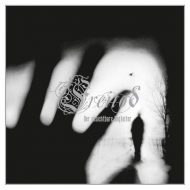 This is German dark metal band Freitod’s third album. I remembered the previous one “Regenjahre” (2012), which was compact and powerful yet for me lacked completeness.
This is German dark metal band Freitod’s third album. I remembered the previous one “Regenjahre” (2012), which was compact and powerful yet for me lacked completeness.
Listening to “Der Unsichtbare Begleiter” (The Invisible Companion), I find it impossible to get away from the idea that Freitod are the “German Katatonia”. The ringing tones of “Unter Schwarzen Wolken” (Under Dark Clouds) reconfirmed this view. It’s very slick and disciplined in its production. This mental comparison stayed with me for the whole of the album, and anyone listening to the persistent pattern at the start of “Mirta” could be forgiven for thinking it is Katatonia. Of course this isn’t a replica of someone else, and “Die Falsche Krankheit” (False Sickness – Hypochondria?) takes a different direction. It is a dark and heavy piece. So too the following title track is powerful and gloomy. The vocals comprise a mix of healthy growls and dreamy clean choruses, which reminded me of Riverside or Alcest. Being in German gives the vocals and lyrics their identity, although just because they’re in German does not mean that they are sophisticated. “Unter schwarzen Wolken liegt keine Hoffnung” (No hope lies under black clouds) is not the most thought-provoking lyric I’ve ever heard.
You’d expect with this kind of theme and style that the album would be atmospheric. To a point it is. The smoothness of “Unter Schwarzen Wolken” made it slightly formulaic, but I was pleased that as the album progressed through various stages of heaviness and reflection, it achieved a darkwave atmosphere. Occasionally there was a surprise. “Zerrissen” (Torn Apart) pumps up the intensity with its fast pace and thrashiness. The songs are all good and well constructed, to the point of being clinical, and so a change of style was welcome. “Die Zeit Heilt Keine Wunden” (Time does not heal wounds), which follows, shifts through a range of moods to the accompaniment of the customary heavy backdrop. The heaviness becomes leaden and melancholic as the final track “ … und am Ende war das Nichts” (In the end was nothingness) gets under way. The most depressive and atmospheric track of all, it also radiates a balance of power and delicacy of feeling more strongly than anything else on this album.
I do speak German, so I don’t think it’s the language barrier getting in the way between me and the soul of this album. This said, like its predecessor “Regenjahre” I appreciated the technical structures of the songs without always capturing the full extent of the mood. I didn’t find that “Der Unsichtbare Begleiter” was an album for high points, but it is nevertheless an accomplished work.
(7/10 Andrew Doherty)

Leave a Reply